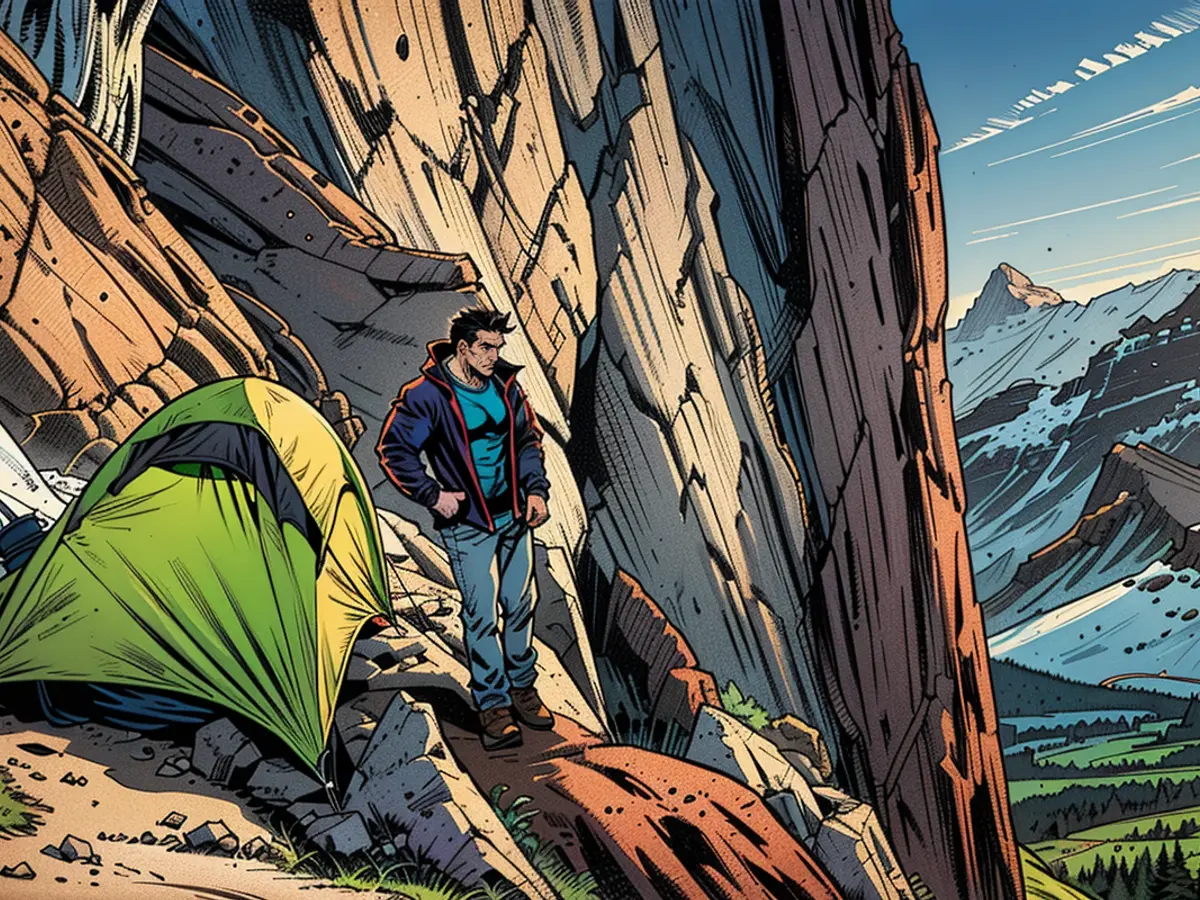"The aspirations of our climbing expedition were crumbling on the mountain slope": U.S. and U.K. mountaineers trapped in the Himalayas for three days.
At around 6,000 meters (approximately 20,000 feet) above sea level, a falling rock managed to slice through Manners' rope, carrying her gear, leaving the two climbers stranded in the harsh wilderness with no essentials such as their tent, stove, food, crampons, and ice axes.
"It was quite a dreadful experience," Manners shared with CNN on Wednesday, now waiting in New Delhi, India, to return home after their miraculous rescue.
"All I could really recall was watching the bag slide down the mountain and feeling astonished, thinking, 'How is this even possible? What's happening here?'"
Despite their initial shock, neither climber's primary concern was their safety or survival – it was heartbreak over their mission, which required rigorous preparation, training, and altitude acclimatization, being cut short just when they were so close to achieving their goal.
Manners, a British woman living in France, and Dvorak, an American, were "absolutely determined" to conquer the unclimbed peak in India's Uttarakhand state. Their ascent of the near 7,000-meter Chaukhamba III started on September 27, as they navigated ice and rock and slept on narrow ledges. The trek to the mountain itself was extremely challenging, as they chose a complex route that involved crossing deep crevasses and fragile snow bridges at risk of collapsing during warmer weather. It took them three tries before they could even reach the mountain's base, she claimed.

"We were on the brink of overcoming all our challenges... we likely had just one day left before we reached the summit, and then we would have been the first climbers to achieve this summit," Manners explained. Instead, "our dreams were crumbling down the mountain."
Without their gear, descending back down and crossing the crevasses was virtually impossible, so they sought help from emergency services. However, they soon became aware of the gravity of their situation as helicopters failed to locate them on the enormous mountain face for two days straight.
Ravindra Singh Negi, the information officer in Uttarakhand's Chamoli district, told CNN that the rescue operation involved the Indian Air Force, the State Disaster Response Force, and the Nehru Institute of Mountaineering.
"We searched all day at the coordinates given to us by the tour company but found nothing," he said.

While they had only two energy bars to snack on and no water since their stove had been lost, even their dehydrated food was useless without a way to heat it. Desperate and dehydrated, they rappelled down to a spot with dripping ice during the few hours when the sun was out to collect a minuscule amount of water.
As their conditions worsened, they faced a snowstorm, hail, and even an avalanche. They huddled together in their wet sleeping bag, with their hair frozen solid, as nighttime temperatures dropped to –15 degrees Celsius (5 degrees Fahrenheit).
"I think I was close to hypothermia, and I was shivering violently through the night that Michelle had to hold my legs just to keep me warm," Manners said. "That sleeping bag saved our lives."
That's when they realized they had to act, even if they were weak and disoriented, she said. The next morning, they began rappelling down the mountain through thick fog, knowing the journey back to base camp could be incredibly dangerous with a high risk of serious injury or falling into a crevasse.

But as they reached the bottom, they saw a group of French mountaineers – a rival team that had also been vying to reach the summit first. Negi confirmed that Indian authorities had contacted the French team for assistance after failing to locate Manners and Dvorak.
When Manners realized the French team had been sent to rescue them, "all my emotions flooded out at once, and I had tears in my eyes," she said.
With their help, she and Dvorak trekked to the French base camp, feasting on cheese that their rescuers had brought from France, she said. The Indian Air Force then airlifted them to a nearby hospital on Sunday, three days after they had been stranded.
Both climbers are unharmed and keen to return home. And their near-death experience has not deterred them from pursuing their dreams, according to Manners, who encourages women and girls to engage in the sport. She aims to give the summit another try next year, perhaps with the French team that saved them.

When people look at their experience, she hopes they see two strong women who "came really close to the top," she said. And when things went awry, they "were still able to survive and manage themselves through that really harsh and terrible situation."
Despite their rescue, Manners and Dvorak couldn't help but reflect on the world-class challenge they had missed by mere meters.
Now, as they plan their triumphant return to their respective homes in New Delhi, India, and the United States, they are inspired to share their story and inspire others to push their limits in the face of adversity.







